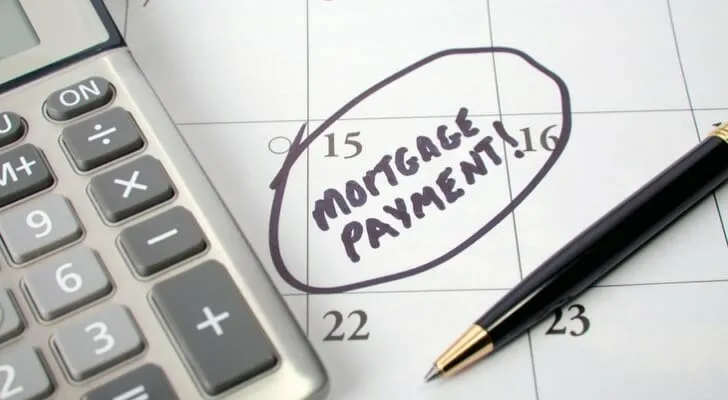Your mortgage is likely one of your largest monthly expenses. Reducing it could free up funds to achieve other financial objectives. There are several strategies to lower your monthly mortgage payments, but not all may suit your personal financial situation. Here's what you need to know to make an informed decision:

By understanding these options and evaluating your current mortgage terms, you can take steps to lower your mortgage rate and monthly payments, ultimately saving money and improving your financial flexibility.
Orion's brokers know that a strong economy usually means higher rates. The final economic data before our national and local elections showed a strong economy, incomes outpacing inflation, slower inflation, and consumers stills pending. But Orion's management believes that the specifics are worth looking at for anyone trying to understand mortgage rates.
Lowering your mortgage payments can significantly enhance your financial well-being by freeing up funds for other priorities. Mortgage payments are composed of four primary components, known as PITI: principal, interest, taxes (property), and insurance (homeowners and/or private mortgage insurance). To effectively reduce your mortgage payments, you need to address one or more of these elements.
When focusing on the principal and interest, the core components of the loan, there are two main strategies to make your payments more manageable: securing a lower interest rate or extending the loan term. Here are some options you can consider to lower your mortgage payments:
By exploring these strategies and evaluating your current mortgage terms, you can take proactive steps to lower your mortgage rate and monthly payments, ultimately saving money and enhancing your financial flexibility. Additionally, staying informed about mortgage rate trends and working with experienced mortgage lenders can provide further opportunities to optimize your mortgage payments.

Refinancing your mortgage involves replacing your existing home loan with a new one, potentially offering a lower interest rate, an extended loan term, or both. This process can help reduce your monthly mortgage payments and save money over time. However, several factors should be considered before deciding to refinance:
If you don't qualify for a lower interest rate, consider purchasing mortgage discount points. These points are a form of prepaid interest, where each point costs 1% of the loan principal and reduces the interest rate by 0.25%. Keep in mind that buying down the rate increases upfront costs, extending the time needed to reach the break-even point where refinancing becomes advantageous.
By carefully evaluating these factors, you can determine if refinancing is the right strategy to secure a lower mortgage rate and reduce your monthly payments, ultimately leading to significant savings and improved financial flexibility.
Eliminating private mortgage insurance (PMI) can significantly lower your monthly mortgage payments, offering substantial savings over time. PMI is typically required by most mortgage lenders on conventional loans when the down payment is less than 20% of the home's purchase price. According to 2023 data from the Urban Institute, PMI can cost homeowners between 0.58% and 1.86% of the loan amount annually. However, once you accumulate 20% equity in your home, you can request the removal of PMI, thus reducing your monthly expenses and enhancing your financial flexibility.
For those with FHA loans, the rules differ slightly. FHA loans require mortgage insurance premiums (MIP) for the life of the loan unless you made a down payment of at least 10%. In such cases, you can request the cancellation of MIP after making 11 years of mortgage payments. By removing MIP, you can further decrease your monthly mortgage payment, making your loan more affordable.
Understanding the nuances of PMI and MIP can empower you to make informed decisions about your mortgage payments. By working closely with your mortgage lender, you can explore options to eliminate these insurance costs, thereby lowering your mortgage rate and monthly payments. This proactive approach not only saves money but also improves your overall financial health.
For more detailed guidance on removing FHA mortgage insurance premiums, visit: Getting rid of FHA mortgage insurance premiums (MIP). By staying informed and taking strategic steps, you can effectively manage your mortgage payments and achieve greater financial stability.

If you're facing financial challenges, the government provides loan modification programs designed to alleviate financial burdens by making your mortgage more affordable. These modifications often involve adjusting the loan's interest rate or extending the loan term, which can result in lower monthly payments. Unlike refinancing, which involves acquiring a new loan, a loan modification keeps your existing loan but alters its terms.
For instance, you might convert a 30-year mortgage into a 40-year one, spreading payments over an additional decade and thereby reducing monthly outlays. However, this approach may lead to higher interest costs over the life of the loan.
It's important to note that not all mortgage lenders offer loan modifications, and the eligibility criteria can be strict. Additionally, even if you qualify, the reduction in monthly payments might not be substantial enough to offset the increased total interest paid due to the extended loan term. Therefore, it's crucial to carefully assess whether a loan modification aligns with your financial goals and personal financial situation.
There are alternative strategies to reduce your monthly payments that don't directly involve altering your mortgage. One effective approach is to lower your property tax bill, which can decrease the escrow portion of your monthly mortgage payment. Often, property tax assessments are set too high following fluctuations in the real estate market or changes in local zoning laws. If you suspect this is the case for your property, you might consider appealing your property's assessed value with the appropriate state or local authorities. Keep in mind the deadlines for filing an appeal if you choose this path.
Recasting your mortgage involves making a large lump-sum payment toward your balance, after which your lender re-amortizes the loan. With a smaller balance, you’ll owe less in interest and pay less each month.
Recasting doesn’t involve closing costs, although your lender may charge an administrative fee, which is usually a few hundred dollars.
Rules for recasting vary — and not all lenders offer i — but you’ll at least need to have enough equity in your home and a large enough payment to be approved.
If you're finding it difficult to manage your mortgage payments, consider applying for mortgage forbearance. This option allows you to temporarily reduce or pause your payments, providing a short-term respite while you get your finances back on track. During the forbearance period, you'll avoid negative credit reporting and foreclosure, giving you some breathing room to stabilize your financial situation. However, be prepared to demonstrate financial hardship to your lender to qualify for this relief.
Remember, forbearance is only a temporary solution. The payments you miss, along with any accrued interest, will eventually need to be repaid. You can choose to pay the missed amounts in a lump sum or through a repayment plan, which may increase your monthly payment once the forbearance period ends.
Most mortgage lenders require borrowers to establish an escrow account when obtaining a mortgage. With each monthly mortgage payment, a portion is allocated to this account. The lender then uses these funds to pay your property taxes and homeowners insurance on your behalf.
Reducing your property taxes can lead to smaller monthly payments. However, this process can be challenging, as it involves filing an appeal with your county assessor. The assessor's office will review your property taxes to determine if you're overpaying. A successful appeal could lower your property tax bill, ultimately reducing your monthly mortgage payment.
If your mortgage payment is straining your budget, there are proactive measures you can take to alleviate the burden. Start by contacting your mortgage lender to explore options for loan modification or refinancing, if it aligns with your financial goals. Additionally, consider getting a home appraisal to assess whether you qualify to cancel PMI, challenge your property tax assessment, or search for more cost-effective homeowners insurance. These steps can help you lower your monthly payments and improve your financial situation.

If you find yourself unable to repay your mortgage as agreed, there's a risk of losing your home through foreclosure. It's crucial to contact your mortgage servicer as soon as possible if you're struggling with payments.
Your lender may offer several assistance options, including refinancing, loan modification, repayment plans, forbearance, or even the possibility of short-selling your home. Additionally, you could consider a deed-in-lieu of foreclosure, which allows you to voluntarily give your home back to the lender to avoid foreclosure.
For further support, reach out to a HUD-approved housing counseling agency for free guidance on avoiding foreclosure. If you're already facing foreclosure or have received legal notices, seeking legal advice might also be necessary.
No, contributing extra funds to your escrow account typically doesn't decrease your monthly mortgage payment or affect your loan principal. However, you have the flexibility to add more money to your escrow at any time, which can help cover any potential shortfalls. These additional contributions may remain in the account for a while without being utilized.
While making extra payments on your mortgage won't directly reduce your monthly payment, it can significantly impact the overall loan. By applying additional payments toward your principal balance, you can accelerate the payoff process, effectively shortening the loan term. This approach can save you money in the long run by reducing the total interest paid over the life of the loan.
For example, if you consistently make extra payments, you might be able to pay off your mortgage several years earlier than planned. This could mean substantial savings, especially when considering the long-term interest that would have accrued. Additionally, paying down the principal faster also builds equity in your home more rapidly, which can be advantageous if you decide to refinance or sell your home in the future.
However, it's important to note that while your monthly payment remains unchanged, the benefits ofreduced interest and increased equity can significantly enhance your financial situation over time. Before making additional payments, it's advisable to check with your mortgage lender to ensure that the extra payments are applied correctly toward the principal, maximizing the potential savings and benefits.

If your monthly mortgage payments are too high, you can take steps to lower them. Ways to go about this include refinancing, removing mortgage insurance, lowering your property tax bill and reducing the amount you pay each month in homeowners insurance.